Filter by
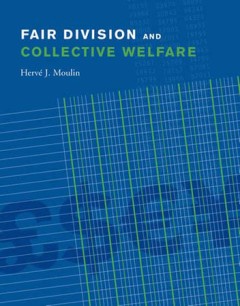
Fair division and collective welfare
The concept of fair division is as old as civil society itself. Aristotle's "equal treatment of equals" was the first step toward a formal definition of distributive fairness. The concept of collective welfare, more than two centuries old, is a pillar of modern economic analysis. Reflecting fifty years of research, this book examines the contribution of modern microeconomic thinking to distribu…
- Edition
- -
- ISBN/ISSN
- 9780262280297
- Collation
- 1 online resource (vi, 289 pages) :illustrations
- Series Title
- -
- Call Number
- -
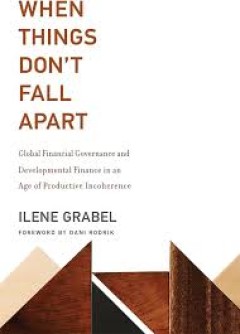
When things don't fall apart :global financial governance and developmental f…
An account of the significant though gradual, uneven, disconnected, ad hoc, and pragmatic innovations in global financial governance and developmental finance induced by the global financial crisis. In When Things Don't Fall Apart, Ilene Grabel challenges the dominant view that the global financial crisis had little effect on global financial governance and developmental finance. Most observers…
- Edition
- -
- ISBN/ISSN
- 9780262344043
- Collation
- 1 online resource (xxi, 372 pages)
- Series Title
- -
- Call Number
- -
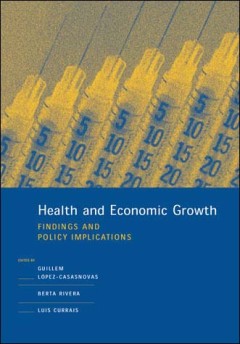
Health and economic growth : findings and policy implications
While human capital is a clear determinant of economic growth, only recently has health's role in this process become a focus of serious academic inquiry. By marrying the separate fields of health economics and growth theory, this groundbreaking book explores the explicit mechanisms by which a population's individual and collective health status affects a nation's economic development and perfo…
- Edition
- -
- ISBN/ISSN
- 9780262290586
- Collation
- 1 online resource (x, 385 pages) : illustrations
- Series Title
- -
- Call Number
- 330 HEA
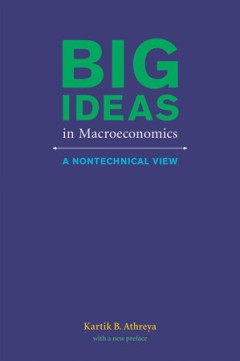
Big ideas in macroeconomics :a nontechnical view
Macroeconomists have been caricatured either as credulous savants in love with the beauty of their mathematical models or as free-market fundamentalists who admit no doubt as to the market's wisdom. In this book, Kartik Athreya draws a truer picture, offering a nontechnical description of prominent ideas and models in macroeconomics, arguing for their value as interpretive tools as well as thei…
- Edition
- -
- ISBN/ISSN
- 9780262314404
- Collation
- 1 online resource (xi, 415 pages) :illustrations
- Series Title
- -
- Call Number
- -
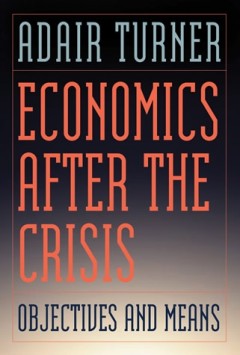
Economics after the crisis :objectives and means
The global economic crisis of 2008-2009 seemed a crisis not just of economic performance but also of the system's underlying political ideology and economic theory. But a second Great Depression was averted, and the radical shift to New Deal-like economic policies predicted by some never took place. Perhaps the correct response to the crisis is simply careful management of the macroeconomic cha…
- Edition
- -
- ISBN/ISSN
- 9780262301756
- Collation
- 1 online resource (xiii, 108 pages) :illustrations.
- Series Title
- -
- Call Number
- -

Climate Policy and Nonrenewable Resources: The Green Paradox and Beyond
Too rapidly rising carbon taxes or the introduction of subsidies for renewable energies induce owners of fossil fuel reserves to increase their extraction rates for fear of their reserves becoming worthless. Fossil fuel use is thus brought forward. The resulting acceleration of global warming and counter-productivity of well-intended climate policy has been coined the Green Paradox. This volume…
- Edition
- -
- ISBN/ISSN
- 9780262319836
- Collation
- 1 online resource :illustrations.
- Series Title
- -
- Call Number
- -
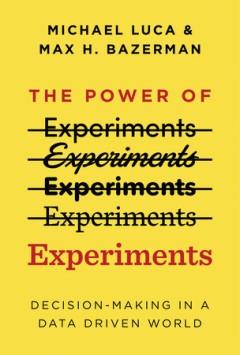
The power of experiments :decision making in a data-driven world
How organizations--including Google, StubHub, Airbnb, and Facebook--learn from experiments in a data-driven world.OCLC-licensed vendor bibliographic record.
- Edition
- -
- ISBN/ISSN
- 9780262358255
- Collation
- 1 online resource (xiv, 211 pages)
- Series Title
- -
- Call Number
- -
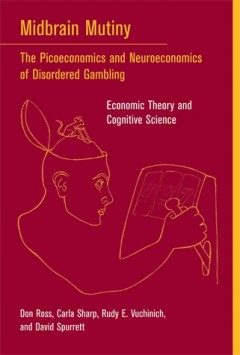
Midbrain mutiny : The Picoeconomics and Neuroeconomics of Disordered Gambling…
An analysis of how economic theories can be used to understand disordered and pathological gambling that calls on empirical evidence about behavior and the brain and argues that addictive gambling is the basic form of all addiction.
- Edition
- -
- ISBN/ISSN
- -
- Collation
- 1 online resource (x, 301 pages) : illustrations
- Series Title
- -
- Call Number
- -
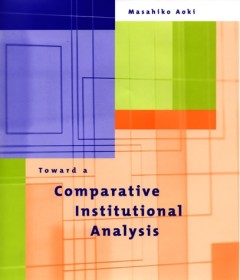
Toward a Comparative Institutional Analysis
A conceptual and analytical framework for understanding economic institutions and institutional change.Markets are one of the most salient institutions produced by humans, and economists have traditionally analyzed the workings of the market mechanism. Recently, however, economists and others have begun to appreciate the many institution-related events and phenomena that have a significant impa…
- Edition
- -
- ISBN/ISSN
- 9780262267212
- Collation
- 1 online resource (xi, 467 pages) :illustrations.
- Series Title
- -
- Call Number
- -
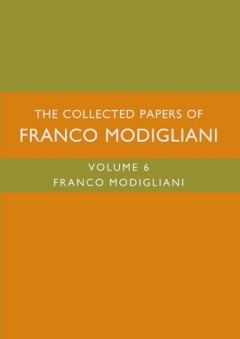
The Collected Papers of Franco Modigliani, Volume 6
Articles and essays by the late Nobel Prize-winning economist on the life-cycle hypothesis, unemployment and monetary policy in the European Union, and other topics.This volume of papers, articles, and essays by the late Nobel Prize-winning economist Franco Modigliani contains writings published during the last decade of his life as well as three seminal earlier papers on the life-cycle hypothe…
- Edition
- -
- ISBN/ISSN
- 9780262280051
- Collation
- 1 online resource (1 volume) :illustrations
- Series Title
- -
- Call Number
- -
 Computer Science, Information & General Works
Computer Science, Information & General Works  Philosophy & Psychology
Philosophy & Psychology  Religion
Religion  Social Sciences
Social Sciences  Language
Language  Pure Science
Pure Science  Applied Sciences
Applied Sciences  Art & Recreation
Art & Recreation  Literature
Literature  History & Geography
History & Geography